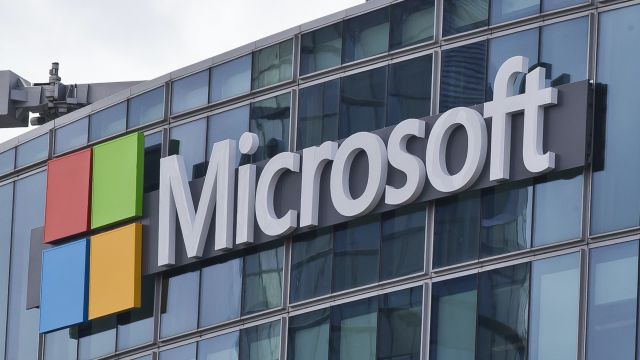The news was announced on Monday by the US tech giant and Greek prime minister Kyriakos Mitsotakis and follows nine months of confidential negotiations for an agreement that also includes digital-skills training programmes for some 100,000 government and private sector workers as well as educators and students.
“This significant investment is a reflection of our confidence in the Greek economy, in the Greek people and the Greek government,” Microsoft president Brad Smith said at a ceremony held in the Acropolis Museum, facing the ancient site in central Athens.
“It’s not something we do often and it’s not something that we do lightly.”

Greece recently emerged from a years-long financial crisis but its economy has been hard hit by the pandemic, suffering a 15.2% drop in output on the year in the second quarter. Unemployment in June climbed to 18.3% from 16.4% at the start of the year.
According to budget figures submitted to parliament Monday, Greece’s economy is expected to contract 8.2% this year due to the effects of the coronavirus pandemic, and grow by up to 7.5% next year.
The Covid-19 pandemic has exposed the country’s heavy reliance on tourism.
The Mitsotakis government says it wants to shift the balance of the Greek economy during its recovery, developing the energy, tech, and defence sectors, hoping to lure back tens of thousands of graduates who left during the crisis.
“We are starting to create the conditions for their return,” Mr Mitsotakis said. “The creation of a data centre upgrades a country as an investment destination … Greece has the sun and now it’s getting a cloud.”
Microsoft currently has data centres in 26 countries, including seven in the European Union.
The company based in Redmond, Washington, is already working with the Greek government on an augmented reality project on Ancient Olympia, birthplace of the Olympic games.
Microsoft officials said the timetable for the development of the data centre in Greece was still being worked out, but added that the process in other countries typically took about two years.
Greece, the officials said, would comply with Microsoft’s pledge to run all its data centres worldwide on renewable energy sources by 2025.







